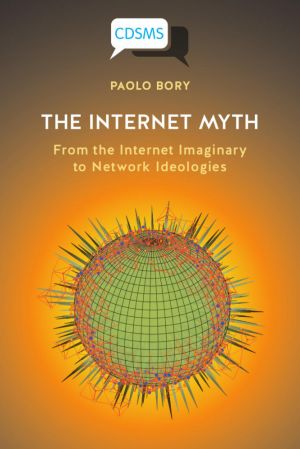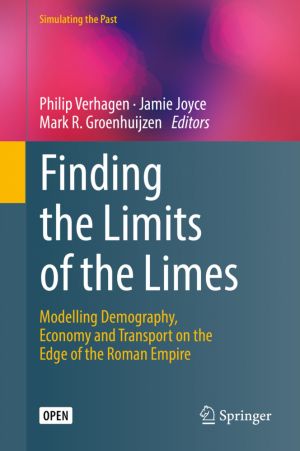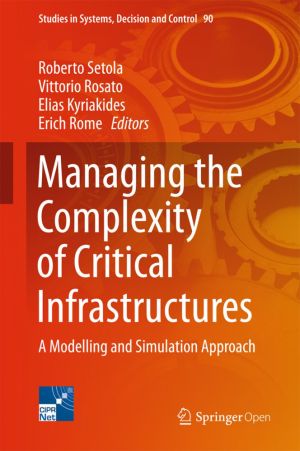Managing the Complexity of Critical Infrastructures
A Modelling and Simulation Approach
by Roberto Setola, Vittorio Rosato, Elias Kyriakides, Erich Rome
DescriptionDetailsHashtagsReport an issue 






Book Description
This book summarizes work being pursued in the context of the CIPRNet (Critical Infrastructure Preparedness and Resilience Research Network) research project, co-funded by the European Union under the Seventh Framework Programme (FP7). The project is intended to provide concrete and on-going support to the Critical Infrastructure Protection (CIP) research communities, enhancing their preparedness for CI-related emergencies, while also providing expertise and technologies for other stakeholders to promote their understanding and mitigation of the consequences of CI disruptions, leading to enhanced resilience. The book collects the tutorial material developed by the authors for several courses on the modelling, simulation and analysis of CIs, representing extensive and integrated CIP expertise. It will help CI stakeholders, CI operators and civil protection authorities understand the complex system of CIs, and help them adapt to these changes and threats in order to be as prepared as possible for mitigating emergencies and crises affecting or arising from CIs.This open book is licensed under a Creative Commons License (CC BY). You can download Managing the Complexity of Critical Infrastructures ebook for free in PDF format (10.0 MB).
Book Details
Title
Managing the Complexity of Critical Infrastructures
Subject
Engineering and Technology
Publisher
Springer
Published
2016
Pages
300
Edition
1
Language
English
ISBN13
9783319510422
ISBN10
3319510428
ISBN13 Digital
9783319510439
ISBN10 Digital
3319510436
PDF Size
10.0 MB
License

Related Books

David Harvey's The Condition of Postmodernity rationalised capitalism's transformation during an extraordinary year: 1989. It gave theoretical expression to a material and cultural reality that was just then getting properly started - globalisation and postmodernity - whilst highlighting the geo-spatial limits to accumulation imposed by o...

Books about Oxford have generally focused on the University rather than the city. This original book on the local politics of Oxford City from 1830 to 1980 is based on a comprehensive analysis of primary sources and tells the story of the city's progressive politics. The book traces this history from Chartism and electoral reform in the mid-ni...

The Internet Myth retraces and challenges the myth laying at the foundations of the network ideologies - the idea that networks, by themselves, are the main agents of social, economic, political and cultural change. By comparing and integrating different sources related to network histories, this book emphasizes how a dominant narrative has extensi...

The naval leader has taken centre stage in traditional naval histories. However, while the historical narrative has been fairly consistent the development of various navies has been accompanied by assumptions, challenges and competing visions of the social characteristics of naval leaders and of their function. Whilst leadership has been a constant...

This book demonstrates the application of simulation modelling and network analysis techniques in the field of Roman studies. It summarizes and discusses the results of a 5-year research project carried out by the editors that aimed to apply spatial dynamical modelling to reconstruct and understand the socio-economic development of the Dutch part o...

How does technology impact research practices in the humanities? How does digitisation shape scholarly identity? How do we negotiate trust in the digital realm? What is scholarship, what forms can it take, and how does it acquire authority?
This diverse set of essays demonstrate the importance of asking such questions, bringing together establis...

